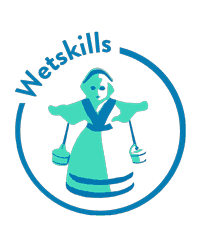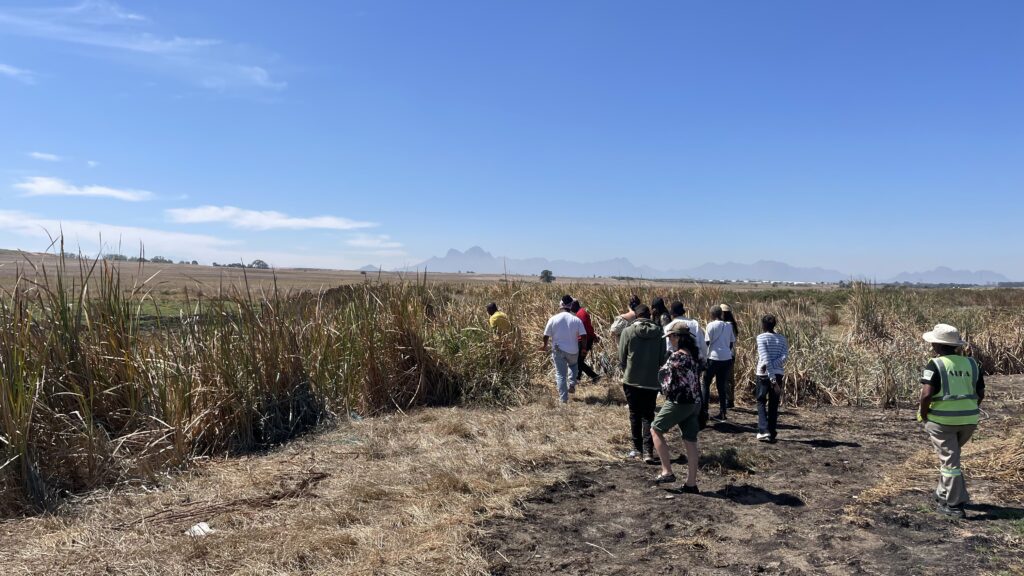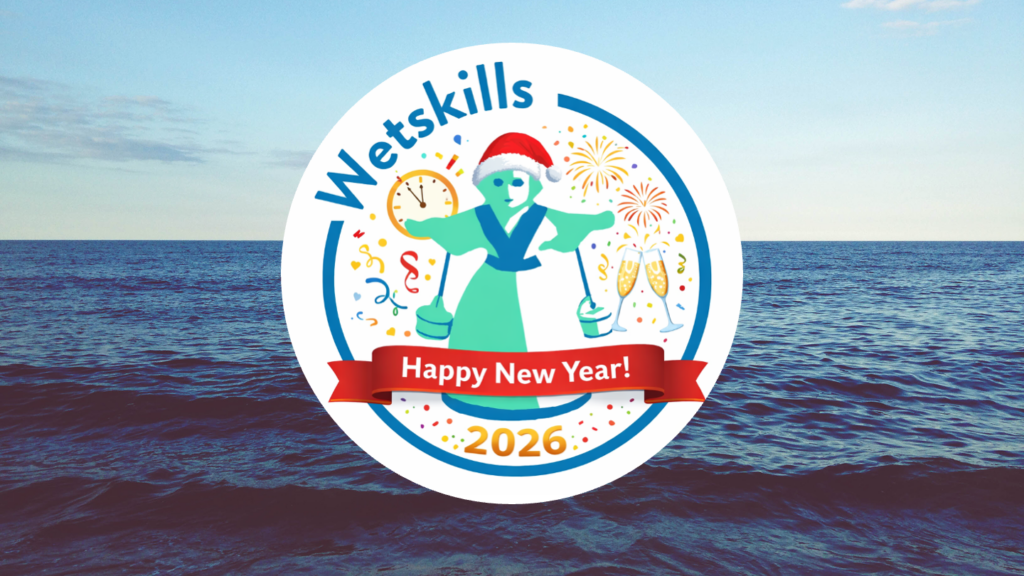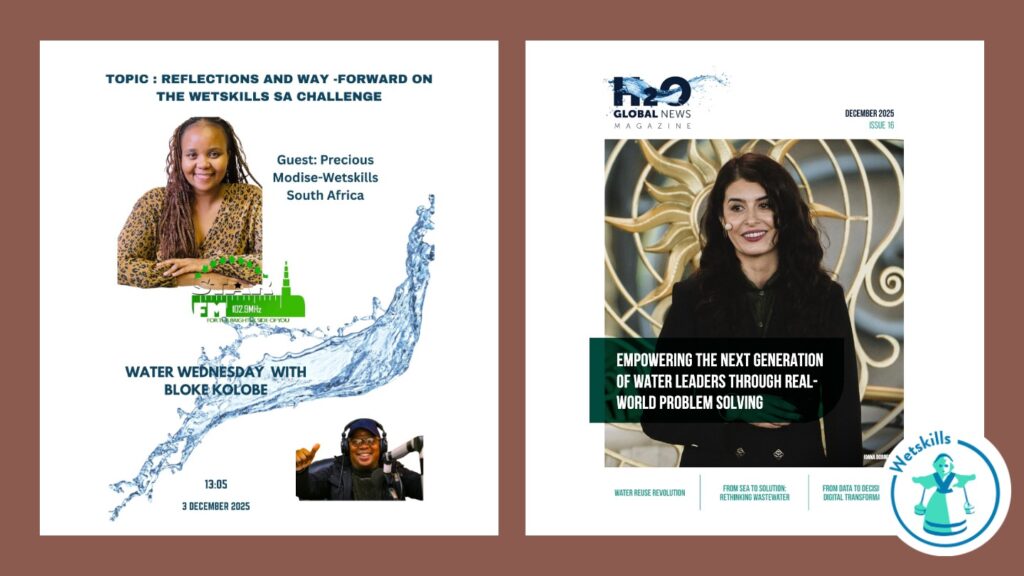The activities began on February 19th with a meeting involving WFI Director Ioana Dobrescu, Jaap Feil from WFI, EMG Director Mandy, and myself, the Wetskills regional manager. After brainstorming, we headed to a bustling spot in Observatory for lunch. There’s nothing like good food and banter to keep the creative juices flowing, especially after reconnecting with the WFI team since our last meetup at The Hague. It’s moments like these that remind us why Wetskills is more than just work; it’s about forging lasting connections.
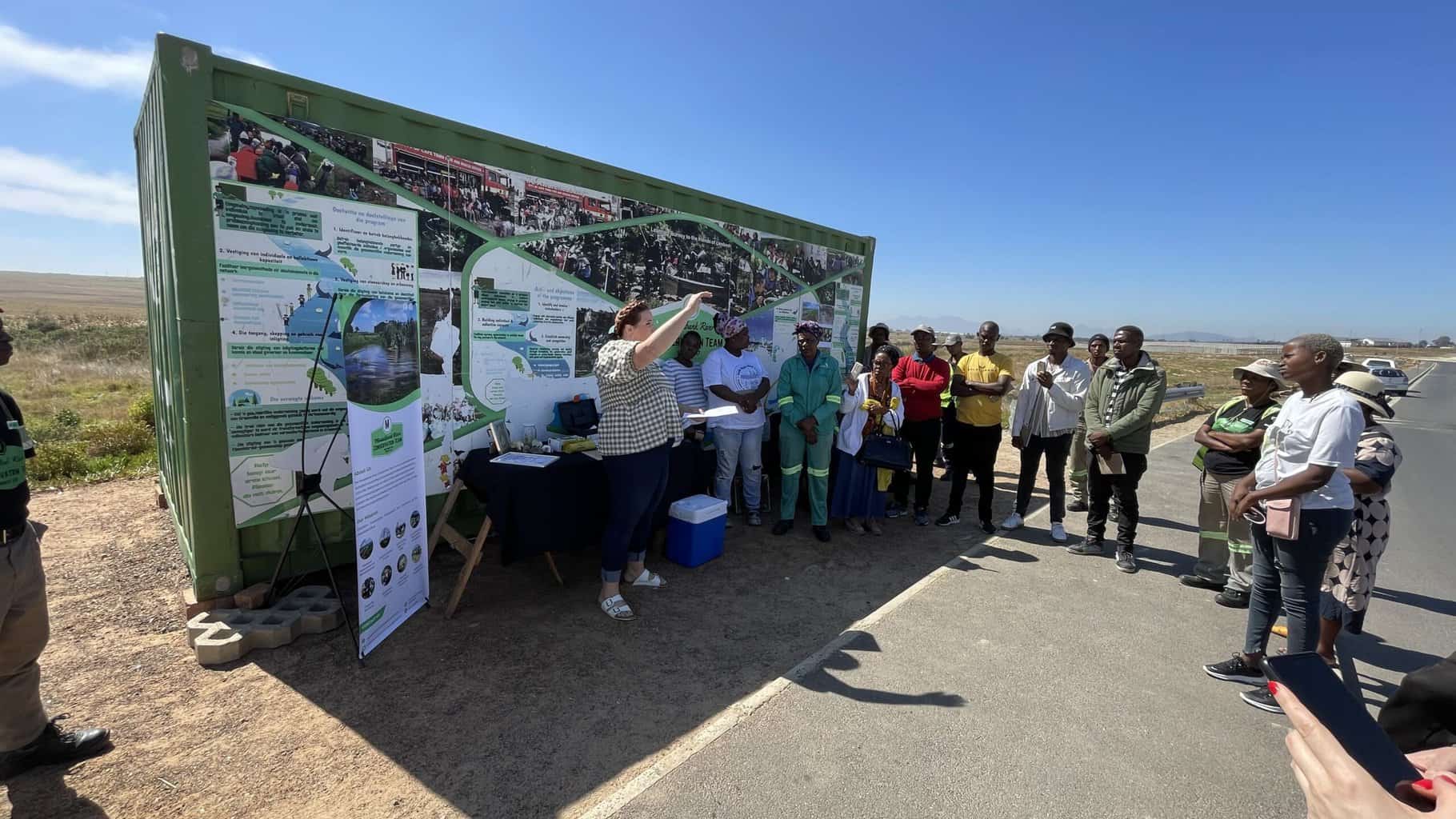 The momentum carried us to the Mosselbank River Conservation Project led by Danielle Cronje on the 20th. The Mosselbank River Conservation Team is a non-profit organization dedicated to protecting and preserving the Mosselbank wetlands in their community. The team consists of volunteers passionate about environmental education and restoration, working tirelessly to maintain the health and beauty of our natural resources. They shared their journey, joys and tribulations, and offered advice to the Makhaza community members.
The momentum carried us to the Mosselbank River Conservation Project led by Danielle Cronje on the 20th. The Mosselbank River Conservation Team is a non-profit organization dedicated to protecting and preserving the Mosselbank wetlands in their community. The team consists of volunteers passionate about environmental education and restoration, working tirelessly to maintain the health and beauty of our natural resources. They shared their journey, joys and tribulations, and offered advice to the Makhaza community members.
Then, on the 21st, it was all about community outreach with the aim of engagement: tree planting at the Khayelitsha Wetlands Park and getting our hands dirty with a water quality assessment alongside high school students, an initiative led by WFI Project Manager and Wetskills Alum Afika Ndlela.
Afterwards, we swung by the Future Water Research Institute at the University of Cape Town, where we had the pleasure of meeting Kirsty Carden, the director. We explored potential collaborations while following up on previous ideas and developing timelines.
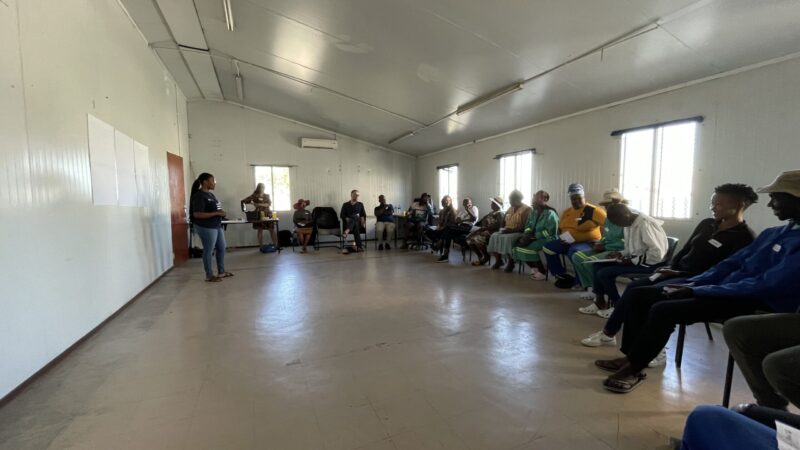
Wrapping up the week on the 23rd, EMG and WFI held a community workshop in Khayelitsha. It was great to see locals reflecting on the week’s activities and pitching ideas to improve water quality in the wetlands while creating job opportunities for themselves. The role of co-design and community outreach that aims to foster engagement is critical in such initiatives.
Throughout, the primary focus was on enhancing water quality and quantity in the Khayelitsha Wetland, with community-centred initiatives central to these efforts. And let’s not forget the broader goal is offsetting water footprints while championing social and economic benefits for the community. A heartfelt appreciation extends to the 11th Hour Racing Team for their invaluable financial support, and to all those actively contributing to the continual success of the project.
I can’t wait to see how this project unfolds and what’s WetsNEXT on the horizon.
More information: Craig Tinashe Tanyanyiwa
